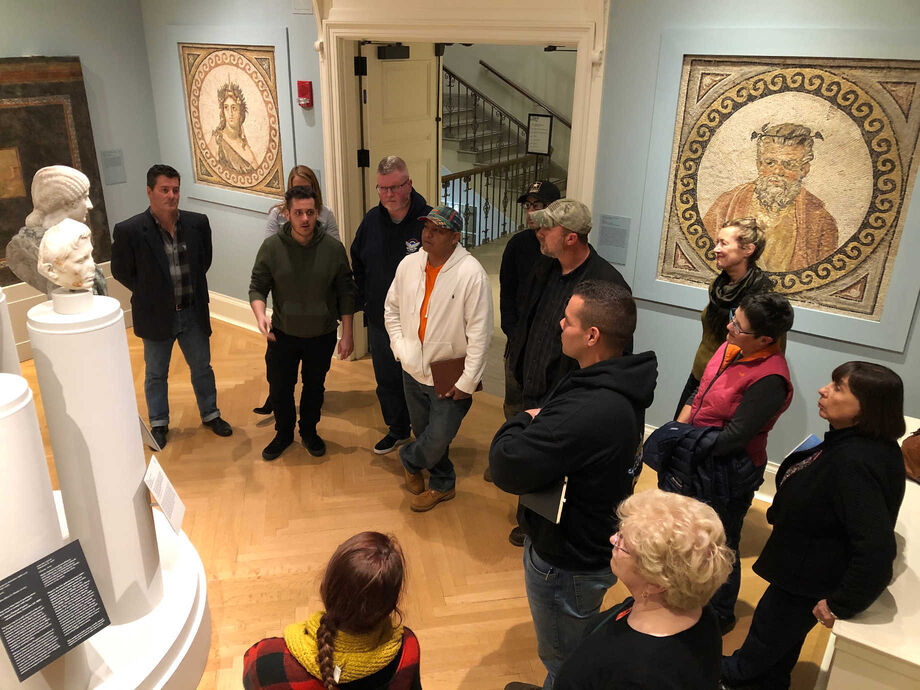
Participants in a Rhode Island Clemente Course for Veterans discuss historical representations of war at an art museum. Image courtesy of the Clemente Course.
Through Dialogues on the Experience of War, the National Endowment for the Humanities (NEH) brings together veterans and civilians to reflect upon powerful literature and art. The NEH has funded 62 Dialogues programs in 26 states and the District of Columbia. Many of these involve multiple sites, further extending the program’s impact and reaching underserved communities.
–Veteran Participant
Dialogues programs help veterans gain new insight into their military experience by engaging rich humanities resources. Veterans bond through collective reflection around novels, memoirs, poetry, art, music, and films that illuminate common experiences of deployment and homecoming across centuries, continents, and cultures. In an NHA-conducted survey undertaken from 2018–2019, 93% of participants across four programs indicated that the humanities materials helped them better understand their experiences.
of respondents across nine programs agreed that the humanities materials used in their programs raised issues that were relevant to their experiences.
of respondents across eight programs reported a desire to “keep in touch with some of the people [they] met through the program.”
of respondents across ten programs agreed the groups they took part in were “safe and supportive places for discussion.”
of veteran respondents across nine programs indicated that their program made them more likely to seek help if they need it.
Beyond helping veterans reflect on their experiences, Dialogues programs help veterans combat isolation and form networks of support, connecting them with fellow veterans, civilians, and public institutions in their communities. In the same survey, 100% of respondents reported a desire to “keep in touch with some of the people [they] met through the program.” One-hundred percent agreed the groups they took part in were “safe and supportive places for discussion.” And 73% agreed that the program “has made me more likely to ask for help if I need it.” This work is especially significant in light of the fact that veterans struggle to form real bonds with their communities following their military service: respondents to a 2017 Wounded Warrior Project survey reported significantly higher levels of social isolation than the general population.
–Veteran Participant
Dialogues programs meaningfully bridge the divide between veterans and their communities. Many programs bring veterans and civilians into dialogue with one another as part of their discussion groups. Others host plays, lectures, and panels associated with the program to help foster deeper understanding of veterans’ experiences within their community. In a survey of public programs held by Ohio University, 85% of respondents agreed that the “program gave [them] opportunities to see connections between those who have served and those who have not.” Ninety-seven percent felt “more confident about taking part in thoughtful discussions about war.”